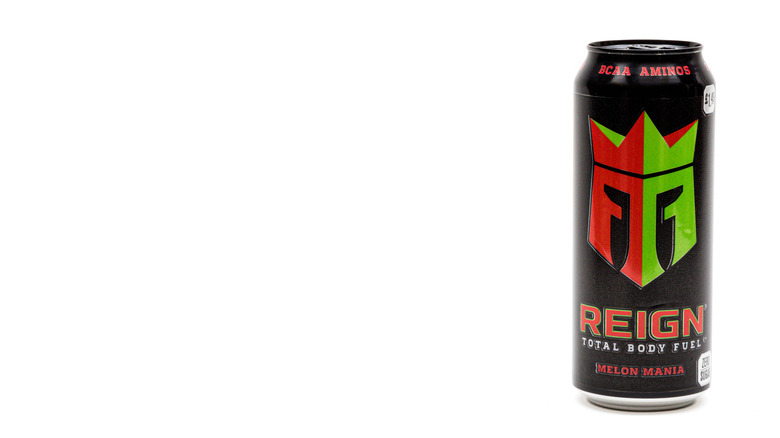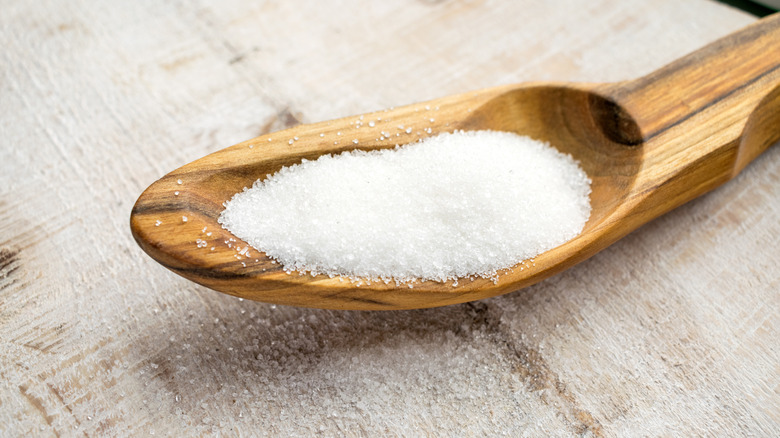Are Reign Energy Drinks Bad For You?
Reign boasts seemingly desirable health features on the labels of their cans, highlighting caffeine, zero sugar, zero calories, zero artificial flavors, and zero artificial colors. The addition of CoQ10, amino acids, electrolytes and vitamins B3, B6 and B12 appear to provide important nutrients and health benefits for athletes who need to replenish, build muscle, and hydrate. While it may appear that Reign energy drinks are healthy at first glance, there are some important things to keep in mind regarding energy drinks like Reign, particularly with regards to caffeine content, natural flavors, and sucralose. While we want our energy drinks to offer us a pick-me-up, it's also important to note how much caffeine we're actually getting. Reign's website states that they source their "natural caffeine" from green coffee beans and each can has a total caffeine content of 300mg. This is 75% of our total recommended daily caffeine intake for the day, as Mayo Clinic suggests 400mg should be the maximum daily intake. If we've already had one morning cup of coffee and then reach for a Reign energy drink in the afternoon, we'll easily surpass our recommended daily limit.
'Natural flavors'
Another important consideration is the ingredient "natural flavors." "Natural flavors" is the fourth most common ingredient found on food labels, and despite being called natural, health experts warn about the misleading nature of such an ingredient. Many of these additives often contain both artificial and synthetic chemicals, according to Food Drug Law Journal. However, food manufacturers can still label it a "natural flavor" if it falls under the broad definition of an essential oil, essence, or extract that results from a product being roasted or heated. These may be derived from a spice, fruit, juice, vegetable, yeast, herb, bark, bud, root, leaf, poultry or meat product, seafood product, dairy, egg, or fermented product (via FDA). Because "natural flavors" is such a broad definition, there exist few binding regulations to date. Additionally, the addition of natural flavors in our food supply is a modern day method for enhancing palatability and processing of packaged and convenience foods. As such, there are few long-term, epidemiological studies showing human health impacts of consumption.
Sucralose
Some of the positive ingredients in Reign energy drink appear to be the vitamins, amino acids and electrolytes — important nutrition considerations for active individuals. But what about sucralose? Sucralose has been a relatively controversial ingredient since its introduction onto the market in 1998 (via FDA). Sucralose is a zero calorie sweetener that's six times sweeter than regular sugar, and while sucralose may be considered dangerous by some, there's recent evidence to suggest some health benefits associated with sucralose intake. A 2019 randomized control trial published in the American Journal of Clinical Nutrition aimed to compare impacts of four different types of common sweeteners. They found that both sucrose and saccharin drastically increased body weight, while sucralose was found to lower body weight. But what about the impacts of sucralose in individuals who don't normally consume artificial sweeteners? Researchers suggest these individuals may experience greater impacts to insulin sensitivity and blood sugar spikes, via Cleveland Clinic. It's also suggested artificial sweeteners may contribute to greater instances of sugar cravings, making weight loss more difficult over the long run.



